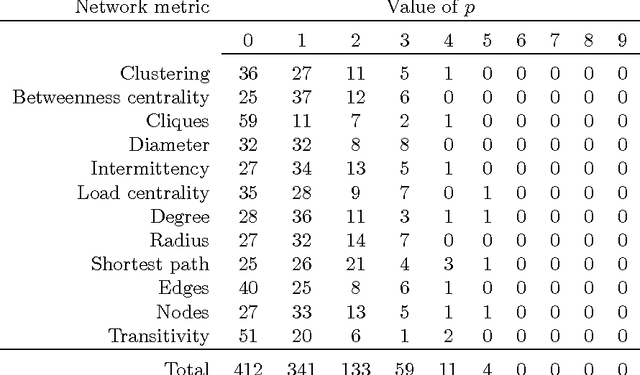Text authorship identified using the dynamics of word co-occurrence networks
Paper and Code
Jul 29, 2016
The identification of authorship in disputed documents still requires human expertise, which is now unfeasible for many tasks owing to the large volumes of text and authors in practical applications. In this study, we introduce a methodology based on the dynamics of word co-occurrence networks representing written texts to classify a corpus of 80 texts by 8 authors. The texts were divided into sections with equal number of linguistic tokens, from which time series were created for 12 topological metrics. The series were proven to be stationary (p-value>0.05), which permits to use distribution moments as learning attributes. With an optimized supervised learning procedure using a Radial Basis Function Network, 68 out of 80 texts were correctly classified, i.e. a remarkable 85% author matching success rate. Therefore, fluctuations in purely dynamic network metrics were found to characterize authorship, thus opening the way for the description of texts in terms of small evolving networks. Moreover, the approach introduced allows for comparison of texts with diverse characteristics in a simple, fast fashion.
 Add to Chrome
Add to Chrome Add to Firefox
Add to Firefox Add to Edge
Add to Edge